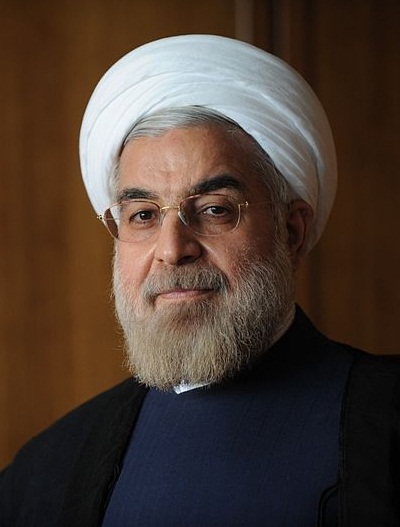By: Jack Constantine
After the tumultuous and controversial eight-year presidency of Mahmoud Ahmadinejad, a positive outlook for any future diplomatic relations between the U.S. and Iran looked bleak. News of the landslide election of moderate cleric Hassan Rouhani this June, however, left many in Washington and around the world cautiously optimistic about the prospects of renewed international relations concerning Iran’s pursuit of nuclear weapons.
 Trained as a religious scholar, Rouhani also studied English in London and received a Ph.D. in constitutional law from Glasgow Caledonian University in Scotland. Calm and well-spoken in public, Rouhani presents a stark contrast to his predecessor. Dressed in clerical garb, Rouhani, in his first news conference since taking office declared Iran’s willingness to engage in legitimate nuclear negotiations with the international community. As many point out, however, true authority in Iran still rests with Ayatollah Khamenei, the Supreme Leader. It is also true that the Ayatollah has a long history of fiercely anti-American rhetoric and decisions. Khamenei has the final say on all matters foreign and domestic within Iran, and any tentative foreign policy decisions must be approved by him before being realized. In an interview with NBC News, however, President Rouhani mentioned that the Supreme Leader has invested him with the authority to make a deal with the West regarding Iran’s nuclear program, a crucial step in the negotiations.
Trained as a religious scholar, Rouhani also studied English in London and received a Ph.D. in constitutional law from Glasgow Caledonian University in Scotland. Calm and well-spoken in public, Rouhani presents a stark contrast to his predecessor. Dressed in clerical garb, Rouhani, in his first news conference since taking office declared Iran’s willingness to engage in legitimate nuclear negotiations with the international community. As many point out, however, true authority in Iran still rests with Ayatollah Khamenei, the Supreme Leader. It is also true that the Ayatollah has a long history of fiercely anti-American rhetoric and decisions. Khamenei has the final say on all matters foreign and domestic within Iran, and any tentative foreign policy decisions must be approved by him before being realized. In an interview with NBC News, however, President Rouhani mentioned that the Supreme Leader has invested him with the authority to make a deal with the West regarding Iran’s nuclear program, a crucial step in the negotiations.
“I as president say that the Islamic republic has a serious political intention to resolve the nuclear issue while maintaining our rights and trying to ease the concerns of all parties in the short term,” said Rouhani.

(Photo courtesy of Wikimedia Commons)
The new president has already taken measures toward reform, appointing several progressive minded officials to positions within his cabinet, particularly his nominee for foreign minister, Mohammad Javad Zarif. In an op-ed for the Washington Post, Rouhani urged President Obama to “make the most of the mandate for prudent engagement that my people have given me and to respond genuinely to my government’s efforts to engage in constructive dialogue.” This came in the week leading up the U.N. General Assembly, where Rouhani would make an address for the first time as newly elected president of Iran.
Addressing the U.N. General Assembly Tuesday morning, President Obama spoke with careful optimism about the prospects of renewed diplomacy with Iran, embracing President Rouhani’s call for a nuclear weapons agreement, and directing Secretary of State John Kerry to explore the possibilities such an agreement.
These developments, while tentative, are the most significant steps towards diplomacy since 1979’s revolution. While a renewed dialogue between the United States and Iran may never come to fruition, it would be unwise to balk at the new opportunity presented by Rouhani’s election; for if a conciliatory agreement could be reached in the near future, it would surely be the most constructive and beneficial international development since the fall of the Soviet Union.







